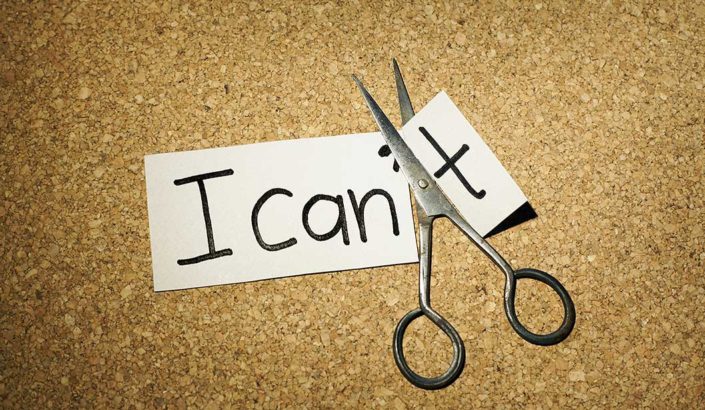Why Startup Founders Need a Growth Mindset

Starting a business is no walk in the park. You’re solving problems no one’s cracked, managing uncertainty daily, and navigating rejection like it’s a full-time job. What separates the successful founders from the ones who burn out or give up? It’s often one key trait: a growth mindset.
In this article, we’ll explore why cultivating a growth mindset for startup founders isn’t just helpful—it’s essential for long-term success. Whether you’re bootstrapping your first MVP or raising your Series A, your mindset can be your biggest edge or your biggest bottleneck.
What is a Growth Mindset?
Coined by psychologist Carol Dweck, a growth mindset is the belief that abilities and intelligence can be developed through dedication, learning, and effort. This contrasts with a fixed mindset, where people believe their talents are static.
For startup founders, this belief system is a game-changer. Why? Because the startup world is full of variables you can’t control—market shifts, investor feedback, product pivots. But what you can control is how you respond to challenges and how fast you learn.
Embracing Failure as Feedback
Let’s be real—your first product might flop. Your launch might fall flat. Investors might say no. Over and over.
But if you’re operating with a growth mindset, these aren’t dead ends—they’re data points. Every failure is a lesson. Instead of thinking, “I’m not cut out for this,” you start asking, “What can I learn here?”
Lifelong Learning is the Founder Superpower
Founders with growth mindsets don’t wait to be told what to learn—they chase knowledge like it’s revenue. Whether it’s learning to code, understanding cap tables, or refining sales strategies, they constantly upskill.
Why does this matter? Because the startup game evolves fast. The tools you use today might be obsolete tomorrow. The best founders treat learning as a daily habit, not a one-time phase.
So if you’re asking, how do I keep up with the chaos of startup life? Start by making learning part of your company culture.
Reframing Obstacles as Opportunities
Most founders will hit walls. Sometimes they’re market walls, sometimes technical ones, and sometimes they’re internal—like imposter syndrome. With a fixed mindset, these walls can feel final.
But with a growth mindset in startups, they become stepping stones. You begin to reframe obstacles: “This is hard” becomes “This is where I grow.”
This attitude is exactly what separates scrappy entrepreneurs from scalable leaders. You can train this way of thinking—it’s not something you’re born with.
Building a Growth Mindset into Your Startup Culture
Your mindset doesn’t just affect you—it shapes your entire company. If you’re rigid, afraid to take risks, or obsessed with perfection, your team will mirror that. But if you model curiosity, vulnerability, and learning, you create a culture that can weather any storm.
Here’s how founders can bake a growth mindset into company DNA:
- Celebrate progress, not just outcomes
- Normalize experimentation and small failures
- Ask for feedback regularly—and act on it
- Encourage self-directed learning among your team
FoundersMax actively looks for leaders who promote this kind of adaptable, open learning environment. It’s the difference between a startup that scales and one that stalls.
The Role of Resilience and Self-Belief
At some point, every founder hears, “This won’t work.” When you believe your skills are fixed, those words cut deep. But with a growth mindset, you’re driven not by external validation but by internal evolution.
Resilience is less about pushing through pain and more about learning from pressure. That’s what a growth mindset gives you—the ability to trust that every struggle is sharpening your edge.
If you want to attract investors, advisors, and talent, embody this mindset. Show that you’re not just in it for the quick win but committed to long-term transformation.
The biggest pivot you’ll ever make isn’t with your product—it’s with your thinking. Adopting a growth mindset for startup founders isn’t a feel-good cliché. It’s a strategic advantage.
Every great founder you admire has failed, learned, and evolved repeatedly. That ability to transform failure into feedback, learning into leverage, is what makes them stand out.
So the next time you hit a roadblock, ask yourself: What is this teaching me? Because that’s where growth begins—and where real startups are built.
FAQs
1. What is the growth mindset in the context of startups?It’s the belief that entrepreneurial skills can be developed with effort, learning, and resilience—not something you either have or don’t. 2. Can a founder develop a growth mindset over time?
Absolutely. Through consistent learning, feedback, and self-awareness, any founder can shift from fixed to growth-oriented thinking. 3. Why does FoundersMax value growth mindset in founders?
Because adaptability, openness to feedback, and a hunger to learn are key traits for long-term startup success—especially in high-risk environments. 4. How do I build a growth culture in my startup?
Model it yourself. Celebrate learning moments, encourage experimentation, and create space for failure without fear. 5. Where can I get support as a growth-focused founder?
Consider applying to FoundersMax, a venture studio that partners with visionary founders focused on learning and scaling.


